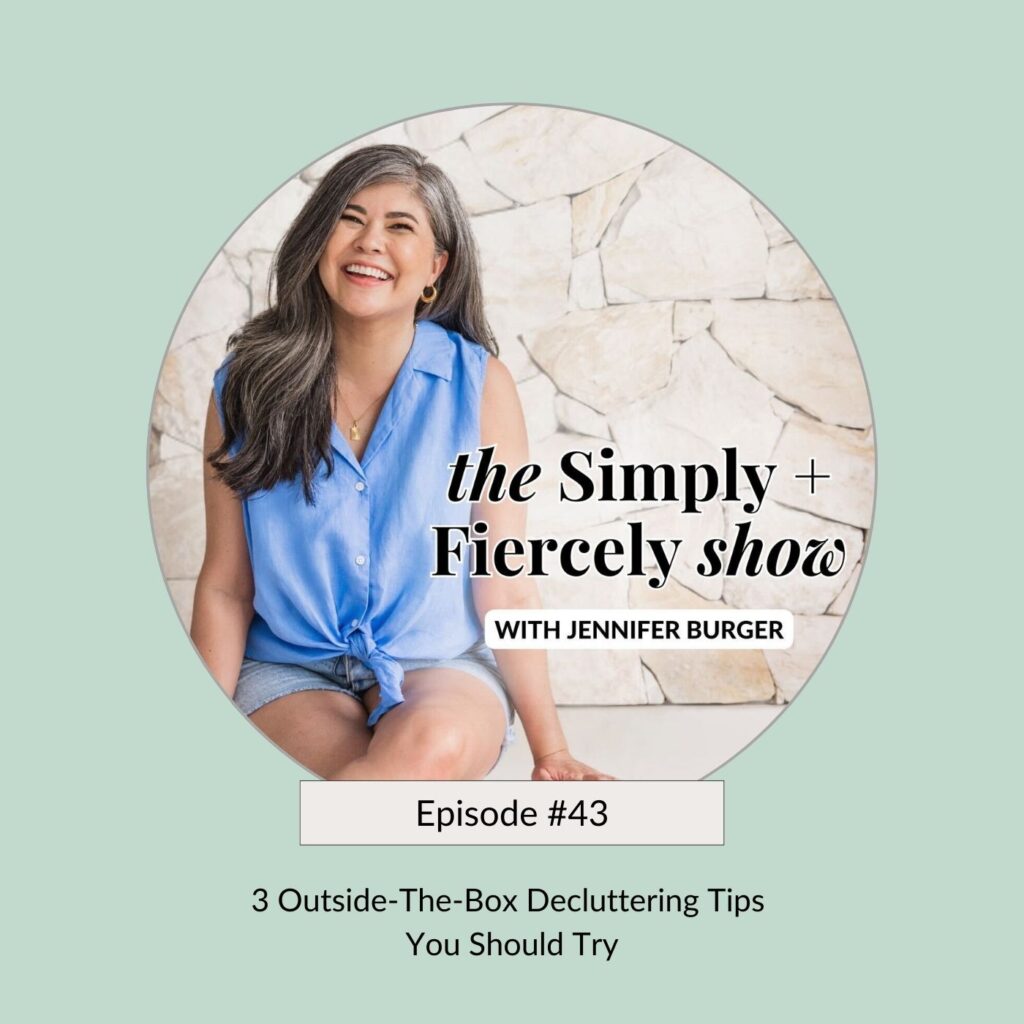Some of the things that had the biggest impact on my decluttering journey were also the least expected. Here are 3 outside-the-box decluttering tips I recommend that everyone tries!
In This Episode:
- why less storage is actually a good thing for most people
- the danger of “someday” living and how this applies to decluttering
- the #1 resource in my decluttering toolkit
Featured In This Episode:
- Get your free Mindful Decluttering guide: simplyfiercely.com/freeguide
- Read the blog: simplyfiercely.com/blog
- Connect on Instagram: @simplyfiercely
- Clear Your Clutter opens in July 2024–get on the waitlist: simplyfiercely.com/clearyourclutter
Subscribe to The Simply + Fiercely Show
- Spotify
- Apple Podcasts (iPhone only)
- TuneIn
- Stitcher
- Overcast
- Castbox
- Google Podcast

